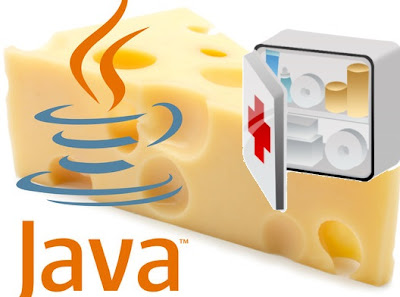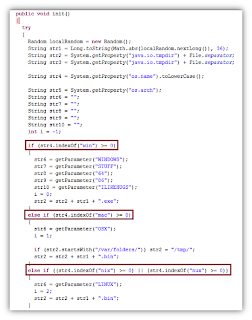DHS & US-CERT Recommended to Disable Java in Web Browsers Unless It's Absolutely Necessary
The running time is proving to be the worst period for Java, as it has been walking under serious security issues. Yet again security researchers have pointed out a zero-day security vulnerability in the Java program that hackers are exploiting. The exploit takes advantage of a vulnerability left open in Java 7 Update 10, released in October last year. It works by getting Java users to visit a website with malicious code that takes advantage of a security gap to take control of users' computers. Thus how Java is being used by cyber criminals to infect computers with malware. Oracle, hasn't specified the number of users who have downloaded Java 7 Update 10. However, Java runs on more than 850 million computers and other devices. When Oracle released Update 10, so it is predictable that more than 850 million devices run by Java is under threat. The exploit was first discovered by French researcher Kafeine, who claimed to have found it running on a site registering hundreds of thousands of page views daily. From that site, immediately that vulnerability and a large number of effected devices has been spotted in the wild. In Java 7 Update 10 the creator of Java, Oracle added several security control and fixed older bugs and promised more security enhancement, but its very unfortunate that Oracle failed to keep their promise. What ever after this newly discovered 0-day hole spotted wildly, Oracle Security Alert CVE-2013-0422 states that Java 7 Update 11 addresses this (CVE-2013-0422) and an equally severe, but distinct vulnerability (CVE-2012-3174). Immunity has indicated that only the reflection vulnerability has been fixed and that the JMX MBean vulnerability remains. Java 7u11 sets the default Java security settings to "High" so that users will be prompted before running unsigned or self-signed Java applets. It "strongly recommends" that Java SE 7 users upgrade immediately to avoid all kind of security hazards.
After seeing all the drama, many of you have failed to keep trust in Java, and you all will be relieved when you will gone through the security advisory of CERT (Computer Emergency Response Team) where they have clearly instructed to disable Java in your popular web-browser. In their official release CERT said "Unless it is absolutely necessary to run Java in web browsers, disable it as described below, even after updating to 7u11. This will help mitigate other Java vulnerabilities that may be discovered in the future."
You will see similar advice in the advisory posted on the official DHS US-CERT website where DHS also suggested to disable Java until and unless it is that much necessary. "To defend against this and future Java vulnerabilities, consider disabling Java in web browsers until adequate updates are available. As with any software, unnecessary features should be disabled or removed as appropriate for your environment." - said U.S. CERT in their advisory.















+Version+4.0.jpg)










